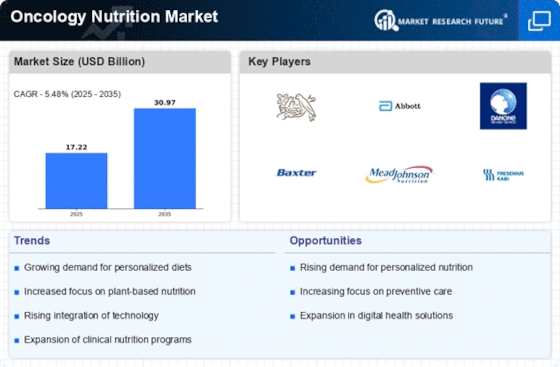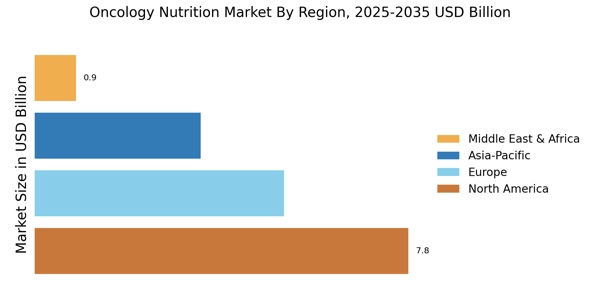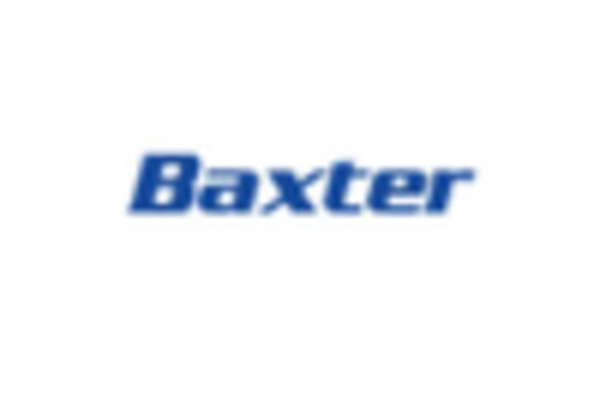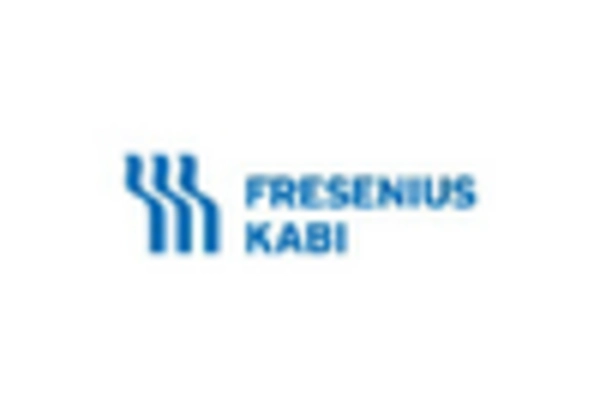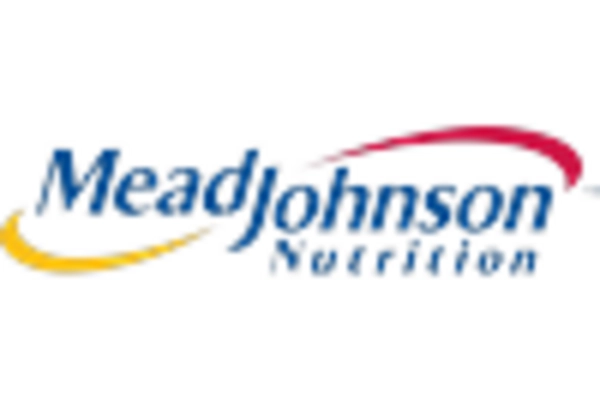Rising Incidence of Cancer
The increasing prevalence of cancer worldwide is a primary driver for the Oncology Nutrition Market. According to recent statistics, cancer cases are projected to rise significantly, with estimates suggesting that by 2040, there could be over 27 million new cancer cases annually. This alarming trend necessitates a focus on nutrition tailored for cancer patients, as proper dietary management can enhance treatment efficacy and improve quality of life. As healthcare systems adapt to this growing challenge, the demand for specialized nutritional products and services within the Oncology Nutrition Market is expected to surge, reflecting a critical need for effective dietary interventions.
Advancements in Nutritional Science
Innovations in nutritional science are propelling the Oncology Nutrition Market forward. Recent developments in understanding the biochemical interactions between food and cancer therapies have led to the creation of specialized diets that can enhance treatment outcomes. For instance, research has shown that certain nutrients can mitigate the adverse effects of chemotherapy, thereby improving patient compliance and overall health. As these scientific advancements continue to emerge, they are likely to drive the demand for evidence-based nutritional products tailored for oncology patients. The Oncology Nutrition Market stands to gain from these advancements, as healthcare providers increasingly incorporate nutritional strategies into comprehensive cancer care plans.
Growing Awareness of Nutritional Impact
There is a burgeoning awareness regarding the role of nutrition in cancer care, which serves as a significant driver for the Oncology Nutrition Market. Research indicates that adequate nutrition can play a vital role in managing treatment side effects and improving patient outcomes. As healthcare professionals increasingly recognize the importance of dietary interventions, patients are becoming more proactive in seeking nutritional guidance. This shift in perception is likely to lead to a greater demand for oncology-specific nutritional products, thereby expanding the market. The Oncology Nutrition Market is poised to benefit from this heightened awareness, as more individuals seek tailored nutritional solutions to support their health during cancer treatment.
Increased Investment in Cancer Research
The Oncology Nutrition Market is benefiting from heightened investment in cancer research, which often includes a focus on nutrition. Governments and private organizations are allocating substantial funds to explore the relationship between diet and cancer treatment outcomes. This influx of research funding is expected to yield new insights into effective nutritional strategies, thereby enhancing the range of products available in the market. As more evidence emerges supporting the role of nutrition in cancer care, the Oncology Nutrition Market is likely to expand, driven by the introduction of innovative nutritional solutions that cater to the specific needs of cancer patients.
Integration of Technology in Nutrition Management
The integration of technology into nutrition management is transforming the Oncology Nutrition Market. Digital health tools, such as mobile applications and telehealth services, are increasingly being utilized to provide personalized nutritional support to cancer patients. These technologies facilitate real-time monitoring of dietary intake and enable healthcare providers to offer tailored advice based on individual needs. As technology continues to evolve, it is expected to enhance patient engagement and adherence to nutritional guidelines, ultimately improving health outcomes. The Oncology Nutrition Market is likely to see significant growth as these technological advancements become more prevalent in cancer care.


